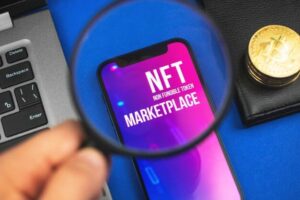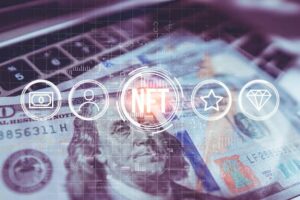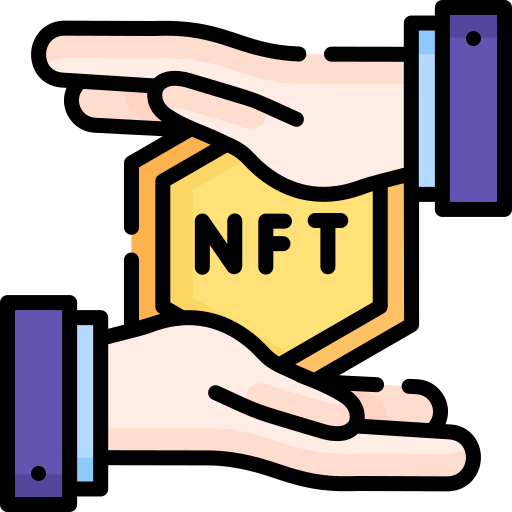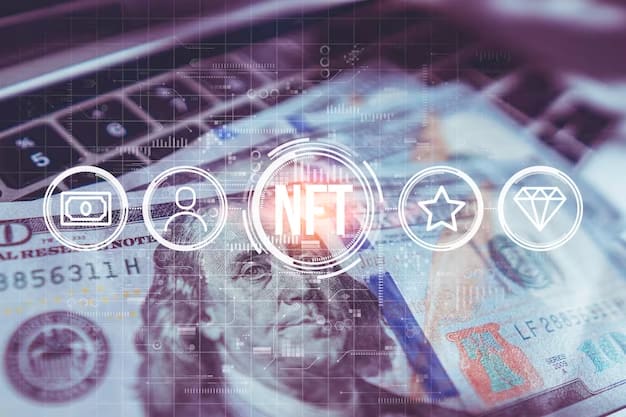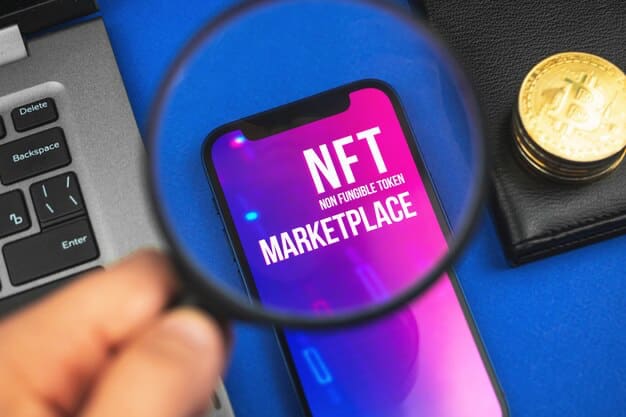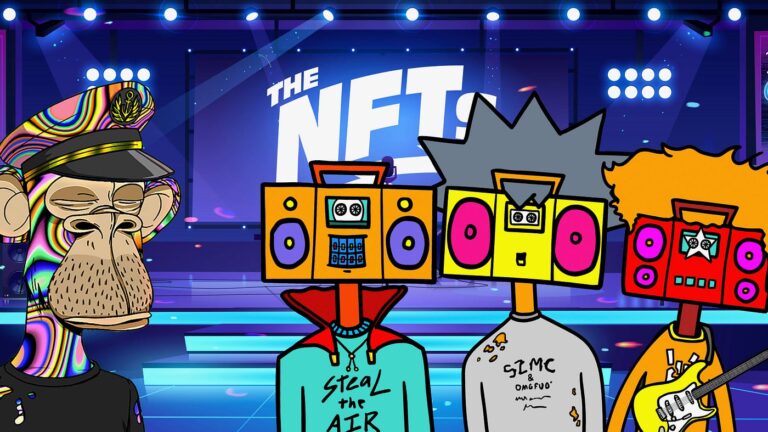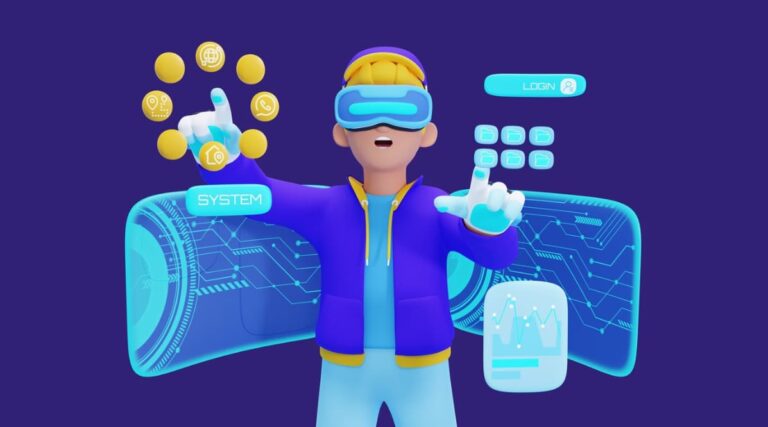Introduction
In the ever-evolving world of digital assets, finding the right talent to create, manage, and innovate Non-Fungible Tokens (NFTs) is essential. This guide will walk you through the steps and strategies on how to find NFT developers who can turn your digital dreams into reality. Let’s dive in!
Understanding the NFT Space
Prior to embarking on the search for NFT developers, it is crucially important to possess a thorough comprehension of Non-Fungible Tokens (NFTs) and their revolutionary impact on the digital realm. Essentially, these tokens are one-of-a-kind digital assets that have been authenticated and secured through blockchain technology. They serve as an innovative solution in verifying ownership and authenticity of various forms of digitized creations including artwork, music compositions, collectibles, virtual real estate properties – essentially any kind of digitally originated content. In this section we’ll delve deep into defining NTFs while highlighting its significant influence across all aspects within today’s modern day global community framework
What Are NFTs?
NFTs stand for non-fungible tokens, a unique type of digital property that cannot be uniformly exchanged with other assets due to their distinctiveness. Unlike cryptocurrencies such as Ethereum or Bitcoin which are interchangeable and divisible, NFTs possess singular qualities that set them apart making each one incomparable to another. Their scarcity, origin assurance and unalterable nature is possible thanks to the essential technology underlying blockchain. An array of characteristics define an NFT including:
- Uniqueness: Uniqueness is inherent in every NFT, as it possesses a distinctive identity and value that distinguishes it from all other tokens;
- Ownership Verification: The confirmation of ownership can be expedited through the use of blockchain technology with NFTs. By possessing an NFT, one has concrete evidence that they are the rightful owner which is immutable;
- Scarcity: Limited availability of NFTs amplifies their worth and attraction to collectors;
- Interoperability: NFTs promote interoperability in the digital world as they are compatible with various platforms and applications.
NFT Use Cases
The versatility of NFTs has led to a wide range of use cases across various industries:
- Art and Creativity: NFTs have revolutionized the art world, enabling digital artists to create, sell, and own digital artworks as NFTs. These NFT-based artworks are unique, can be sold in marketplaces, and often come with ownership rights and royalties for the creators;
- Music and Entertainment: Musicians and content creators use NFTs to sell music, concert tickets, collectible merchandise, and even virtual experiences. This empowers artists to directly engage with their fans and monetize their content;
- Gaming: In the gaming industry, NFTs are used to represent in-game items, characters, and assets. Players can buy, sell, and trade these digital assets both within and outside of the game environment;
- Real Estate and Virtual Worlds: NFTs have found applications in virtual real estate, where users can purchase land, buildings, and virtual spaces. These virtual properties are bought and sold as NFTs and can be developed or monetized within virtual worlds;
- Collectibles: Collectibles, such as digital trading cards and virtual pets, are popular NFT-based assets. These digital collectibles often have unique attributes and can be appreciated in value over time.
The Growth of the NFT Market
The NFT market has experienced explosive growth, with artists, celebrities, athletes, and investors joining the ecosystem. Factors contributing to this growth include:
- Digital Ownership: NFTs provide a solution to digital ownership and scarcity, which was previously challenging to achieve in the digital realm;
- Artistic Freedom: Artists and creators have more control over their work, including pricing, royalties, and distribution, thanks to NFTs;
- Secondary Markets: NFT marketplaces allow users to trade NFTs, creating a vibrant secondary market for digital assets;
- Mainstream Adoption: High-profile NFT sales, collaborations, and endorsements have brought NFTs into the mainstream, attracting global attention.
The Role of NFT Developers
As the NFT market continues to expand and diversify, the need for skilled NFT developers becomes increasingly pronounced. NFT developers play a pivotal role in creating the technical infrastructure and platforms that enable the creation, trading, and ownership of NFTs. Their expertise in blockchain technology, smart contracts, and decentralized applications is essential in shaping the NFT ecosystem.
Where to Look for NFT Developers

NFTs have gained immense popularity in recent years, and as a result, the demand for skilled NFT developers has increased. Let’s explore various avenues where you can look for NFT developers, including online freelance platforms, crypto and NFT forums, social media platforms, and NFT conferences and meetups.
Online Freelance Platforms
Online freelance platforms have become go-to destinations for finding talented NFT developers. These platforms offer a diverse pool of developers with varying levels of experience and expertise. Here are some popular platforms to consider:
| Platform | Description |
|---|---|
| Upwork | Upwork is a well-established platform that allows you to browse through developer profiles, check their portfolios, read reviews, and hire developers with the specific NFT-related skills you need. |
| Freelancer | Freelancer offers a similar experience to Upwork, with a vast network of developers who can work on NFT projects. You can post project listings and choose from a variety of proposals submitted by developers. |
| Fiverr | Fiverr is known for its gig-based approach, where you can find developers offering specific NFT-related services, making it easy to find professionals with niche skills or tasks you require for your project. |
When using these platforms, it’s essential to thoroughly vet candidates by reviewing their previous work, checking client feedback, and conducting interviews to ensure they align with your project’s goals and requirements.
Crypto and NFT Forums
Communities and forums dedicated to cryptocurrencies and NFTs are excellent places to connect with passionate developers who are well-versed in the NFT space. These forums provide a platform for developers to discuss their expertise and showcase their work. Here are some notable ones:
- CryptoDev: CryptoDev is a community of developers and enthusiasts focused on blockchain and cryptocurrency development. You can find developers with in-depth knowledge of NFTs and blockchain technologies here;
- Ethereum Developer Forum: As Ethereum is a leading platform for NFT development, the Ethereum Developer Forum is a valuable resource for connecting with developers who specialize in creating NFTs on the Ethereum blockchain;
- NFT Forums: NFT-specific forums and communities like r/NFT on Reddit and the Bitcointalk NFT section are places where NFT developers frequently participate in discussions and share their experiences.
Engaging in these forums, asking questions, and networking with developers can help you identify potential candidates for your NFT project. Be sure to review their contributions and portfolios to gauge their expertise.
Social Media Platforms
Social media platforms have evolved into hubs for professionals to showcase their skills and connect with potential clients. Utilizing platforms like LinkedIn, Twitter, and Instagram can be highly effective in finding NFT developers. Here’s how you can leverage each platform:
- LinkedIn: LinkedIn is a professional networking platform where you can search for developers based on their skills, experience, and location. Many developers use LinkedIn to display their NFT-related work and accomplishments;
- Twitter: Twitter is a platform where developers often share their thoughts, projects, and insights into the NFT space. You can follow relevant hashtags, engage in conversations, and even direct message potential candidates;
- Instagram: While primarily a visual platform, Instagram can still be a valuable tool for discovering NFT developers. Many developers use Instagram to showcase their creative NFT artwork and connect with like-minded individuals.
NFT Conferences and Meetups
Attending NFT conferences and meetups is an excellent way to immerse yourself in the NFT community and directly interact with developers and companies specializing in NFTs. These events provide opportunities for networking and finding developers who are passionate about NFTs. Keep an eye out for events such as:
- NFT NYC: An annual conference in New York City that focuses on all aspects of NFTs, including development and technology;
- Crypto and Blockchain Meetups: Many cities host local meetups related to blockchain technology and cryptocurrencies, which can be a more accessible way to meet NFT developers in your region;
- Virtual Conferences: With the rise of virtual events, you can also participate in NFT-related webinars, conferences, and workshops from the comfort of your own home.
Evaluating NFT Developers
Once you’ve identified potential NFT developers through the various channels mentioned earlier, it’s crucial to evaluate them thoroughly to ensure they are the right fit for your project. Here are some key factors to consider during the evaluation process:
Portfolio Evaluation
A developer’s portfolio is often the first point of reference when evaluating their suitability for your NFT project. Here are the key aspects to consider when assessing a developer’s portfolio:
- Relevance: Look for NFT projects within their portfolio that closely align with the type of NFT platform or application you intend to create. Developers with relevant experience are more likely to understand the unique challenges and requirements of your project;
- Quality of Work: Examine the quality of their previous NFT creations. Pay attention to factors such as artwork, user interface design, functionality, and overall user experience. High-quality NFTs often exhibit attention to detail and creativity;
- Track Record: Consider the developer’s track record in completing NFT projects on time and within budget. A history of successful NFT developments is a positive indicator of their reliability and project management skills;
- Client References: If possible, reach out to previous clients listed in the developer’s portfolio and inquire about their experience working with the developer. Client feedback can provide valuable insights into the developer’s professionalism, communication, and collaboration skills.
Technical Skills Assessment
NFT development is a technically demanding field that requires proficiency in several key areas. Evaluate the candidate’s technical skills by considering the following:
- Blockchain Expertise: Ensure the developer has a deep understanding of blockchain technology, including how it works, its underlying concepts, and its relevance to NFTs. They should be able to explain the blockchain’s role in securing and verifying NFT ownership;
- Smart Contract Proficiency: Smart contracts are integral to NFTs. Verify that the developer is proficient in writing and deploying smart contracts, particularly in languages like Solidity, which is widely used for Ethereum-based NFTs;
- Cross-Platform Knowledge: NFTs can be built on various blockchain platforms, including Ethereum, Binance Smart Chain, Flow, and more. Check if the developer has experience with the specific blockchain platform you intend to use and whether they can adapt their skills accordingly;
- Security Awareness: Security is paramount in NFT development. Assess the developer’s awareness of security best practices, including preventing vulnerabilities, protecting user data, and ensuring the integrity of the NFT ecosystem.
Understanding of the NFT Market
A deep understanding of the NFT market is essential for developers working in this space. Evaluate their market knowledge by considering these factors:
- Market Trends: Assess whether the developer is up-to-date with current NFT market trends. They should be aware of popular NFT collections, emerging artists, evolving user preferences, and the latest developments in the NFT ecosystem;
- Legal Compliance: NFT projects must adhere to legal regulations and intellectual property rights. Ensure that the developer understands the legal implications of NFT creation, licensing, and ownership. Compliance with legal requirements is critical to avoid potential legal issues in the future;
- Economic Considerations: NFTs often involve economic aspects, such as pricing strategies, royalties, and secondary market dynamics. A developer with a grasp of these economic factors can help you make informed decisions that maximize the value of your NFT project.
Communication Assessment
Effective communication is a cornerstone of successful project collaboration. Evaluate the developer’s communication skills in the following ways:
- Clarity: Ensure that the developer can articulate complex technical concepts in a clear and understandable manner. This is essential for conveying project requirements, updates, and addressing any potential issues that may arise during development;
- Responsiveness: Timely communication is vital to project progress. Determine if the developer is responsive to messages, emails, and inquiries. Delays in communication can lead to project delays, so responsiveness is a crucial factor to consider;
- Collaboration: Assess the developer’s willingness and ability to collaborate with your team or other stakeholders. A developer who can work seamlessly with others enhances the overall project experience and contributes to a more cohesive development process.
Steps on How to Find NFT Developers

Embarking on a journey to find the right NFT (Non-Fungible Token) developer for your project requires a well-defined process. In this section, we will walk you through the steps to find NFT developers efficiently and effectively, ensuring you make an informed decision that aligns with your project’s goals.
Step 1: Define Your Project
Before you start your search for an NFT developer, it’s crucial to have a clear understanding of your project’s objectives and requirements. Defining your project involves:
- Project Scope: Determine the scope of your NFT project, including its purpose, target audience, and the type of NFTs you intend to create (e.g., art, music, collectibles, virtual real estate);
- Technical Specifications: Outline the technical specifications, such as the blockchain platform you plan to use (e.g., Ethereum, Binance Smart Chain), any specific features or functionalities, and integration requirements;
- Budget and Timeline: Establish a budget and timeline for your project. Knowing your budget constraints and expected project duration will help you find developers who can work within your parameters.
Having a well-defined project plan will enable you to communicate your needs clearly to potential developers and ensure they have the necessary skills and experience to meet your project’s objectives.
Step 2: Search and Shortlist
Once you have a clear project plan, you can start searching for NFT developers. Utilize the following platforms and methods to identify and shortlist potential candidates:
- Online Freelance Platforms: Websites like Upwork, Freelancer, and Fiverr provide access to a pool of NFT developers. Use search filters to narrow down your options based on skills, experience, and client reviews;
- Crypto and NFT Forums: Join communities like CryptoDev, Ethereum Developer, and NFT-specific forums to network with developers who are passionate about NFTs. Engage in discussions and seek recommendations;
- Social Media: Platforms like LinkedIn, Twitter, and Instagram are valuable for connecting with professionals. Search for NFT developers, follow relevant hashtags, and engage in conversations to discover potential candidates;
- NFT Conferences and Meetups: Attend industry events and virtual conferences to connect with developers and companies specializing in NFTs. These events offer opportunities for networking and building relationships.
As you search, create a list of potential developers based on their profiles, skills, and relevant experience. This shortlisting process will help you focus on candidates who are the best fit for your project.
Step 3: Interview
Conducting interviews is a critical step in the evaluation process. It allows you to assess the candidates’ experience, skills, and whether they align with your project culture. Here’s how to approach the interview process:
- Prepare Questions: Develop a list of interview questions that cover technical skills, previous NFT projects, problem-solving abilities, and their understanding of your project’s objectives;
- Technical Assessment: Consider conducting a technical assessment or asking candidates to showcase their previous NFT-related work. This can help you gauge their expertise firsthand;
- Cultural Fit: Assess whether the candidate’s values and work style align with your project team. Collaboration and compatibility are essential for a successful partnership;
- Communication Skills: Evaluate the candidate’s communication skills. Effective communication is vital for project coordination and progress updates;
- Ask for References: During the interview, request references from previous clients or employers. This will allow you to verify the developer’s work quality and reliability.
Step 4: Check References
Checking references is a crucial step in confirming the developer’s track record and work quality. Reach out to the references provided by the candidate and inquire about their experiences working with the developer. Questions to ask references may include:
- How was the quality of work delivered by the developer?;
- Did the developer meet project deadlines and stay within budget?;
- Were there any challenges or issues during the project, and how were they resolved?;
- What was the overall experience of collaborating with the developer?
Gaining insights from references can help you make an informed decision and gain confidence in your choice of NFT developer.
Step 5: Trial Project
If feasible, consider starting with a small trial project before committing to a larger engagement. This trial project serves as a practical evaluation of the developer’s skills and compatibility with your team. It allows you to assess:
- Their ability to meet deadlines and deliver quality work;
- How well they integrate with your project’s workflow and communication processes;
- Whether their technical skills align with your project’s requirements.
A trial project can be a low-risk way to confirm that the selected developer is the right fit for your NFT project.
Working with NFT Developers
Collaborating effectively with NFT (Non-Fungible Token) developers is essential for the success of your NFT project. Let’s explore the key aspects of working with NFT developers to ensure a smooth and productive partnership. Clear communication, setting milestones, and understanding project costs are pivotal elements that demand attention throughout the project’s lifecycle.
Clear Communication
Clear and consistent communication forms the foundation of any successful collaboration with NFT developers. Establishing effective communication channels and practices is crucial to keep everyone aligned and informed. Here’s how to ensure transparent communication:
- Regular Updates: Schedule regular update meetings or check-ins with your NFT developers. These sessions allow you to discuss project progress, address any concerns, and provide feedback. Consistency in communication helps prevent misunderstandings and keeps the project on track;
- Feedback Loops: Create a feedback-friendly environment where developers feel comfortable sharing their ideas and insights. Encourage open dialogue to foster creativity and problem-solving. Constructive feedback from both parties can lead to improved project outcomes;
- Documentation: Document project requirements, goals, and any changes or updates that occur during the development process. Having written records ensures clarity and serves as a reference point for all stakeholders;
- Real-time Communication Tools: Utilize messaging platforms, project management tools, or collaborative platforms to facilitate real-time communication. These tools enable instant messaging, file sharing, and task tracking, streamlining communication processes.
Set Milestones
Breaking your NFT project into manageable milestones with clear deliverables and deadlines is essential for effective project management. Milestones provide structure, enable progress tracking, and ensure that the project stays on schedule. Here’s how to set and manage milestones effectively:
- Define Milestones: Work with your NFT developers to define key milestones for the project. These milestones should represent significant project achievements, such as completing the smart contract development, integrating NFT minting functionality, or launching a beta version of your platform;
- Assign Responsibilities: Clearly assign responsibilities for each milestone to the relevant team members, including developers, designers, and project managers. Everyone should know their role and contribution to achieving the milestone;
- Set Deadlines: Establish realistic deadlines for each milestone. Consider factors such as the complexity of the task, developer availability, and potential dependencies between milestones. Avoid setting overly ambitious deadlines that could lead to burnout or rushed development;
- Monitor Progress: Continuously monitor progress toward milestones. Use project management tools or dashboards to track tasks and their completion status. If any issues or delays arise, address them promptly and adjust timelines if necessary.
Understand the Costs
Understanding the budget and cost breakdown for your NFT project is crucial to manage financial aspects effectively. NFT development can involve various expenses, and having a clear understanding of the costs ensures that you stay within budget constraints. Here’s how to navigate project costs:
- Budget Planning: Start by establishing a comprehensive project budget. Consider expenses such as developer fees, design costs, marketing, legal fees, and platform hosting. Allocate budget segments for each aspect of the project;
- Cost Breakdown: Work closely with your NFT developers to create a detailed cost breakdown. Understand how much each development phase or feature will cost. This breakdown helps you make informed decisions and prioritize project elements based on their budget impact;
- Contingency Plan: It’s wise to include a contingency budget for unexpected expenses or scope changes. A contingency plan ensures that you are prepared for unforeseen challenges without jeopardizing the project’s progress;
- Regular Cost Updates: Throughout the project, maintain transparency regarding costs by requesting regular updates from your NFT developers. They should provide you with accurate financial reports and updates on budget utilization.
Conclusion
Understanding how to find adept NFT developers is a critical step in your journey through the dynamic world of digital assets. As you navigate this space, consider the potential of specific NFT applications like ‘travel NFTs‘ to revolutionize not just your portfolio, but also the broader landscape of digital travel experiences. The right developer can turn this vision into a reality, crafting valuable digital assets that resonate deeply within the NFT marketplace. By knowing where to look, what to look for, and how to collaborate effectively, you’re setting the stage for a successful foray into the promising world of NFTs, where your travel-related digital asset could become the next big sensation.
FAQs
Costs can vary widely based on the developer’s experience, the complexity of the project, and the market demand. Generally, prices can range from a few hundred to several thousand dollars.
The timeline can vary from a few weeks to several months, depending on the project’s complexity and the developer’s proficiency.
Look for skills in blockchain technology, smart contracts, programming languages like Solidity, and an understanding of the NFT marketplace.
Yes, many developers are open to one-time projects. Ensure clear communication of your project’s scope and duration.
